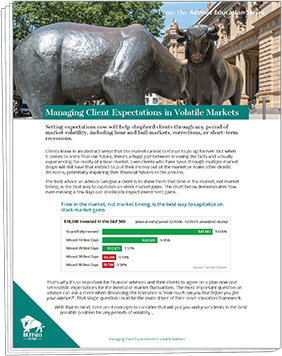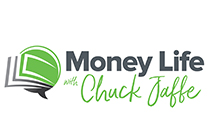No Results Found
The page you requested could not be found. Try refining your search, or use the navigation above to locate the post.
Kiplinger recognized the Buffalo Flexible Income and International Funds as “Top-Performing Mutual Funds” in their recent fund analysis for the period ending February 28, 2022.
The Buffalo Flexible Income Fund (BUFBX) ranked #1 in the Hybrid Stock Funds category for 1-year annualized returns based on Morningstar’s universe of 25,000+ funds. (BUFBX was not ranked in the top 10 for the 3, 5, 10, or 20-year time period)
The Buffalo International Fund (BUFIX) ranked #9 in the International Diversified Large-Company Funds category for 5-year annualized returns based on Morningstar’s universe of 25,000+ funds. (BUFIX was not ranked in the top 10 for the 1, 3, 10, or 20-year time period)
Management Team:
The page you requested could not be found. Try refining your search, or use the navigation above to locate the post.
The page you requested could not be found. Try refining your search, or use the navigation above to locate the post.
Stay up-to-date with the most recent media coverage and press releases about the Buffalo Funds.

That’s why it’s so important for financial advisors and their clients to agree on a plan now and set realistic expectations for the inevitable market fluctuations.
In this updated white paper from the Buffalo Funds, we discuss the following concepts:
|
|
We get to know the companies we invest in and learn how they run their business.
We identify Top-Down broad, secular growth trends and search for companies from the Bottom-Up.
We construct our portfolios based on our own proprietary investment strategy.
Sticking to our disciplined investment strategy ensures we maintain a consistent, balanced approach.

During the call, Ken goes in-depth on large-cap investing, providing an overview of his investment methodology, and also provides his thoughts on the following companies:
“We continue to follow a very well defined investment template for investing in what we call innovative, high quality, durable, large cap growth companies. We do tweak the portfolio to reflect a de-risk environment, while continuing to own some of these high quality durable growth names that we think will be beneficiaries of these major, super cycles over the next 5 to 10 years.“
~ Ken Laudan, Portfolio Manager, Buffalo Large Cap Fund
Ken Laudan
Portfolio Manager
29 Years of Experience
View full bio

Opinions expressed are those of the author or Funds as of 1/21/22 and are subject to change, are not intended to be a forecast of future events, a guarantee of future results, nor investment advice. A full listing of the Buffalo Large Cap Fund portfolio holdings can be found here. Past performance does not guarantee future results.
Earnings per share (EPS) is the portion of a company’s profit allocated to each outstanding share of common stock. Earnings per share serves as an indicator of a company’s profitability. Cash flow is a measure of the cash produced by the firm in a given period on behalf of equity holders. The true measure of the value of a firm’s equity is considered to be the present value of all free cash flows. A basis point is one hundredth of a percentage point (0.01%). GDP stands for Gross Domestic Product. EBITDA stands for earnings before interest, taxes, depreciation and amortization. EBITDA is one indicator of a company’s financial performance and is used as a proxy for a company’s current operating profitability. The S&P 500 is a capitalization weighted index of 500 large capitalization stocks which is designed to measure broad domestic securities markets. The Russell 1000 Growth Index is an unmanaged index that measures the performance of those Russell 1000 Index companies with higher price-to-book ratios and higher forecasted growth values. It is not possible to invest directly in an index. The Russell 1000 Index is an unmanaged capitalization-weighted index of approximately 1,000 of the largest companies in the U.S. equity markets. Enterprise value is a measure of a company’s total value, often used as a more comprehensive alternative to equity market capitalization.
As of 9/30/21 the Buffalo Large Cap Fund top 10 equity holdings were Microsoft 8.58%, Amazon 6.68%, Alphabet (A) 6.22%, Apple 6.01%, Facebook 4.29%, Visa 2.21%, PayPal 2.03%, Intuit 2.00%, Adobe Systems 1.65%, S&P Global 1.49%. Top 10 holdings for the quarter are not disclosed until 60 days after quarter end. Fund holdings are subject to change and are not recommendations to buy or sell any securities.
Stay up-to-date with the most recent media coverage and press releases about the Buffalo Funds.
Considering ESG: Measuring Corporate Responsibility – (part 2 of 2)
Previously, we discussed the origins and nature of Environmental, Social, Governance (ESG), what each of these metrics mean individually and together, and their fiscal and ethical value to investors. Understanding what ESG measures, we can now discuss the practical effects of ESG on return-on-investment and what role it should play, if any, when crafting a portfolio. Does ESG lead to more profitable companies or just more ethical and sustainable ones, and how much weight should ethics and sustainability have when it comes to making decisions about investing?
Informally, ESG is a measure of three big picture factors any business should consider vital to success. In a recent MarshMcLellan study, companies with better ESG scores report 14% higher employee satisfaction, while a separate study done by Cone Communications notes that 88% of consumers will be more loyal to businesses that support social or environmental causes. Because ESG is a major consideration for many advisors, companies with better ESG plans will have an easier time attracting investors, thus raising their price per share and creating an inherent fiscal advantage.
According to a recent KPMG report, 80% of public companies both in the U.S. and worldwide now report on sustainability. Currently, 81% of U.S. public companies are providing ESG disclosures, as compared to 17% of private companies.
ESG Ratings
ESG serves as a social credit score for companies. To help investors understand this metric in a quick and easy way, organizations like Morningstar award companies numerical ratings (in Morningstar’s case, an “ESG Risk Rating”) to determine the risk inherent in each business’s environmental, social, and governance strategies, as determined by current plans and past achievements.
These ratings list factors such as overall investor risk, the highest controversy level raised by the company’s practices, and their primary ESG issues to give investors a snapshot of overall performance. 85% of asset managers consider ESG a high priority and use these ratings to determine whether the business in question is a sound investment due to or despite its ESG bonafides.
This intense scrutiny on ESG means most companies already integrate environmental, social, and governance strategies into their fundamentals. Many companies release a yearly ESG report describing their plans for excelling in these metrics and shoring up any perceived deficiencies to ensure a higher rating in the future. Many investors and asset managers scrutinize these ESG reports just as intently as they do a company’s financials. When doing so, however, it is important to look beyond a company’s own internal plans and self-appraisals to see how they deliver on their promises. An ESG plan that looks great on paper matched with poor performance is often a worse sign than no plan at all.
Is ESG a Good Investment?
With ESG increasingly considered a key performance indicator and companies striving to score strong ratings and publish well-regarded ESG reports, it is safe to say this metric should factor into whether a company is a good investment. At this point, it is simply too central to business discourse to ignore — if only because complete disregard could be a source of poor public relations for companies and their investors. How much of a factor should ESG be when making an investment?
Ultimately, while companies that wish to attract asset managers develop and deliver on solid ESG plans, ESG is not the be-all and end-all of metrics and differs in value to different investors. First and foremost, investors should consider companies that are or promise to be successful in business. The greenest, most ethical company in the world is not a sound investment if it stands no chance of turning a profit.
ESG performance can be a good way to view a company’s leadership to recognize how they manage sustainability and value a healthy society. For many investors, a company’s social credit matters and is an extension of good fundamentals and ethical beliefs. A recent ESG report from McKinsey noted that ESG propositions have a positive impact on equity returns 63% of the time. However, we cannot pinpoint a direct financial connection between ESG and ROI. This may change tomorrow if ESG is ever added to a balance sheet or income statement. Ultimately, we cannot say “only invest in companies with good ESG ratings,” but a good ESG rating could be a sign of a promising investment.
Christopher Crawford is the Head of Sales & Marketing for the Buffalo Funds. He has over 10 years of experience in the financial services industry, previously holding positions at Invesco, IMA Financial Group, and Arthur J. Gallagher. At the Buffalo Funds, Christopher works with investment consultant relations, key account management, institutional distribution and client service. His main goal is to partner with advisors to bring business building ideas and provide unparalleled customer support to their business, always striving to make it easy and reliable to work with the entire Buffalo Funds investment team. Christopher received an M.B.A. from Washington University in St. Louis and a B.S.F.A. from Southern Methodist University. He also holds licenses for the Series 7, Series 63, and Series 65.
 |
Christopher Crawford |
Kiplinger recognized the Buffalo Flexible Income, International, and Small Cap Funds as a “Top-Performing Mutual Fund” in their recent fund analysis for the period ending December 31, 2021.
The Buffalo Flexible Income Fund (BUFBX) ranked #2 in the Hybrid Stock Funds category for 1-year annualized returns based on Morningstar’s universe of 25,000+ funds. (BUFBX was not ranked in the top 10 for the 3, 5, 10, or 20-year time period)
The Buffalo International Fund (BUFIX) ranked #7 in the International Diversified Large-Company Funds category for 1-year annualized returns based on Morningstar’s universe of 25,000+ funds. (BUFIX was not ranked in the top 10 for the 3, 5, 10, or 20-year time period)
The Buffalo Small Cap Fund (BUFSX) ranked #9 in the Small-Company Stock Funds category for 3-year annualized returns based on Morningstar’s universe of 25,000+ funds. (BUFSX was not ranked in the top 10 for the 1, 5, 10, or 20-year time period)
Management Team:
The page you requested could not be found. Try refining your search, or use the navigation above to locate the post.
The page you requested could not be found. Try refining your search, or use the navigation above to locate the post.
The page you requested could not be found. Try refining your search, or use the navigation above to locate the post.
Stay up-to-date with the most recent media coverage and press releases about the Buffalo Funds.